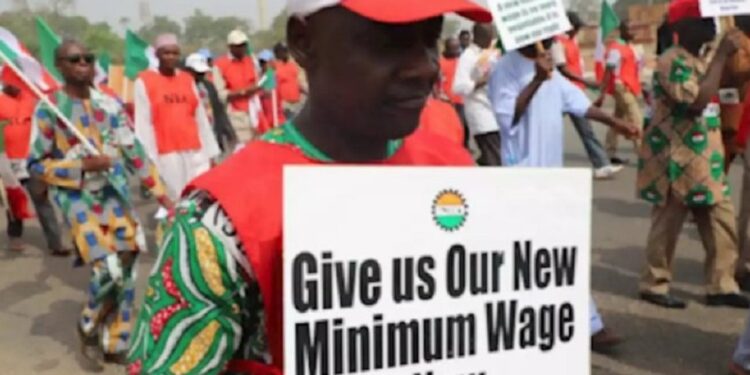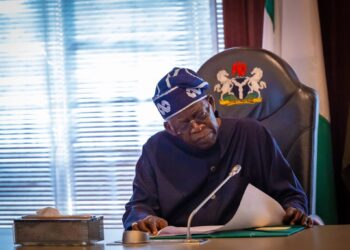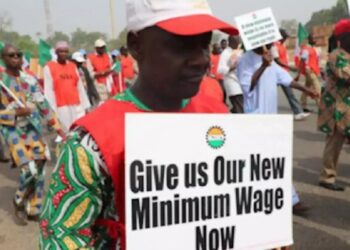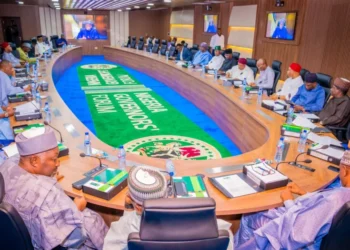The Nigeria Governors’ Forum (NGF) has stated that while a new minimum wage is necessary, a minimum wage of N60,000 is unsustainable and unfeasible.
This resolution was reached after a meeting of the 36 governors on Friday, where they deliberated on a suitable minimum wage that state governments can afford, in response to protests by the Nigeria Labour Congress (NLC) and the Trade Union Congress (TUC) demanding an increase above N60,000 to reflect the current economic realities in the country.
This information was contained in an official statement posted on the X (formerly Twitter) account of Bayo Onanuga, the Special Adviser on Information and Strategy to President Bola Tinubu.
“All things considered, the NGF holds that the N60,000 minimum wage proposal is not sustainable and can not fly.
“It will simply mean that many states will spend all their FAAC allocations on just paying salaries with nothing left for development purposes. In fact, a few states will end up borrowing to pay workers every month. We do not think this will be in the collective interest of the country, including workers,” the statement read in part.
According to the Governors’ Forum, raising the minimum wage to N60,000 has broader implications, including necessary adjustments for all employment cadres and pensioners.
The Forum emphasizes that any agreement reached should not be made hastily but should be sustainable and realistic.
Additionally, the NGF urges all parties, especially labour unions, to consider all socioeconomic factors and strive for an agreement that is sustainable, durable, and fair to all segments of society with legitimate claims to public resources.
What you should know
The Nigeria Labour Congress (NLC) and the Trade Union Congress (TUC) have repeatedly demanded an increase in the minimum wage from N30,000 over the past year.
The labour unions proposed a minimum wage of N494,000, citing this amount as necessary for a worker’s survival given the current economic realities of the country.
However, the federal government stated that it could not sustain this demand, saying it was unsustainable and would result in a N9.5 trillion bill.
The Minister of Information and National Orientation, Mohammed Idris, reiterated that the federal government cannot afford to pay the proposed minimum wage of N494,000, as it would be unsustainable.
In response to the government’s stance, the trade unions embarked on a nationwide strike on Monday, June 3, 2024, demanding an increase in the minimum wage and a reduction in the recently increased electricity tariffs.
The strike saw widespread compliance, bringing the country to a standstill with ministries, departments, and agencies of the government, as well as public facilities such as airports and seaports, shut down.
Later that Monday evening, the federal government met with the labour unions, and a resolution was reached where the government agreed to a minimum wage of above N60,000.
Consequently, the labour unions suspended the strike on Tuesday for five days, pending a final agreement between the trade unions and the government regarding the minimum wage.






















